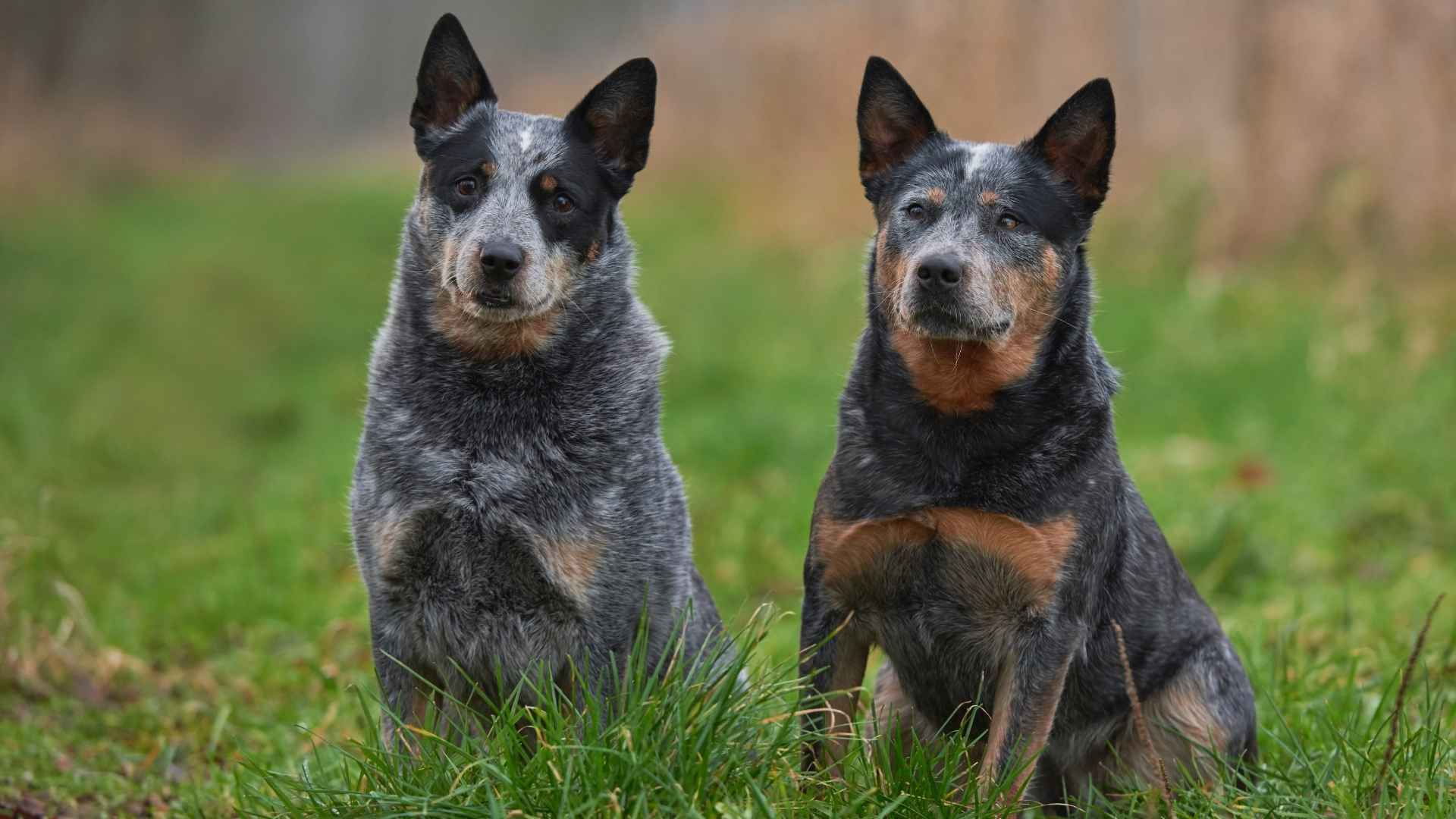Some dogs can eat anything, and we mean anything. Leftover meat? No problem. New food brand? Easy. Gut health in dogs is often overlooked, but it plays a huge role in everything from energy levels to coat quality.
While most breeds need food tweaks and supplements, others come naturally equipped with stronger digestion. These dogs are genetically built for better gut function.
Strong microbiomes, low food sensitivities, and resilient stomachs make these breeds a smart choice for long-term wellness. You don’t need to obsess over probiotics or rotate five kinds of food just to keep them healthy.
If that sounds like a dream, you’re not alone. In this guide, we’ll introduce you to the dog breeds that have some of the healthiest guts, and explain what makes their digestive systems so reliable.
Dog Breeds That Have The Healthiest Guts
1. Poodle

Poodles often digest proteins and fats efficiently, which supports consistent energy levels. Their system tolerates moderate diet variation without signs of stress. This digestive balance is one reason they’re often easy to feed long-term.
Minimal Food Sensitivity
Poodles are known for handling a wide range of quality foods without frequent stomach upsets. Their appetite remains steady across life stages when fed appropriate portions. That makes them a reliable choice for owners focused on gut-friendly diets.
Efficient Internal Functioning
With a stable weight range and strong metabolism, they rarely show signs of overfeeding-related issues. Their gut health supports a smooth digestive rhythm, reducing the risk of bloating or irregularity. Their compact build adds to their system’s efficiency.
A Legacy of Function Over Frill
Despite their stylish image today, the Poodle was first bred for water retrieving, requiring endurance and resilience. That foundation shaped their internal strength, including a naturally stable canine gut microbiome that remains balanced with proper care.
2. Beagle

Beagles are known for their strong appetite and their ability to digest consistent meals without disruption. Their gastrointestinal tract responds well to high-fiber, meat-based diets. With measured feeding, they maintain steady digestion across all life stages.
Adaptability to Diet Changes
This breed tends to adjust to different food types more easily than many others. Gradual dietary shifts rarely cause digestive issues like diarrhea or bloating. That flexibility makes them easier to manage for long-term feeding plans.
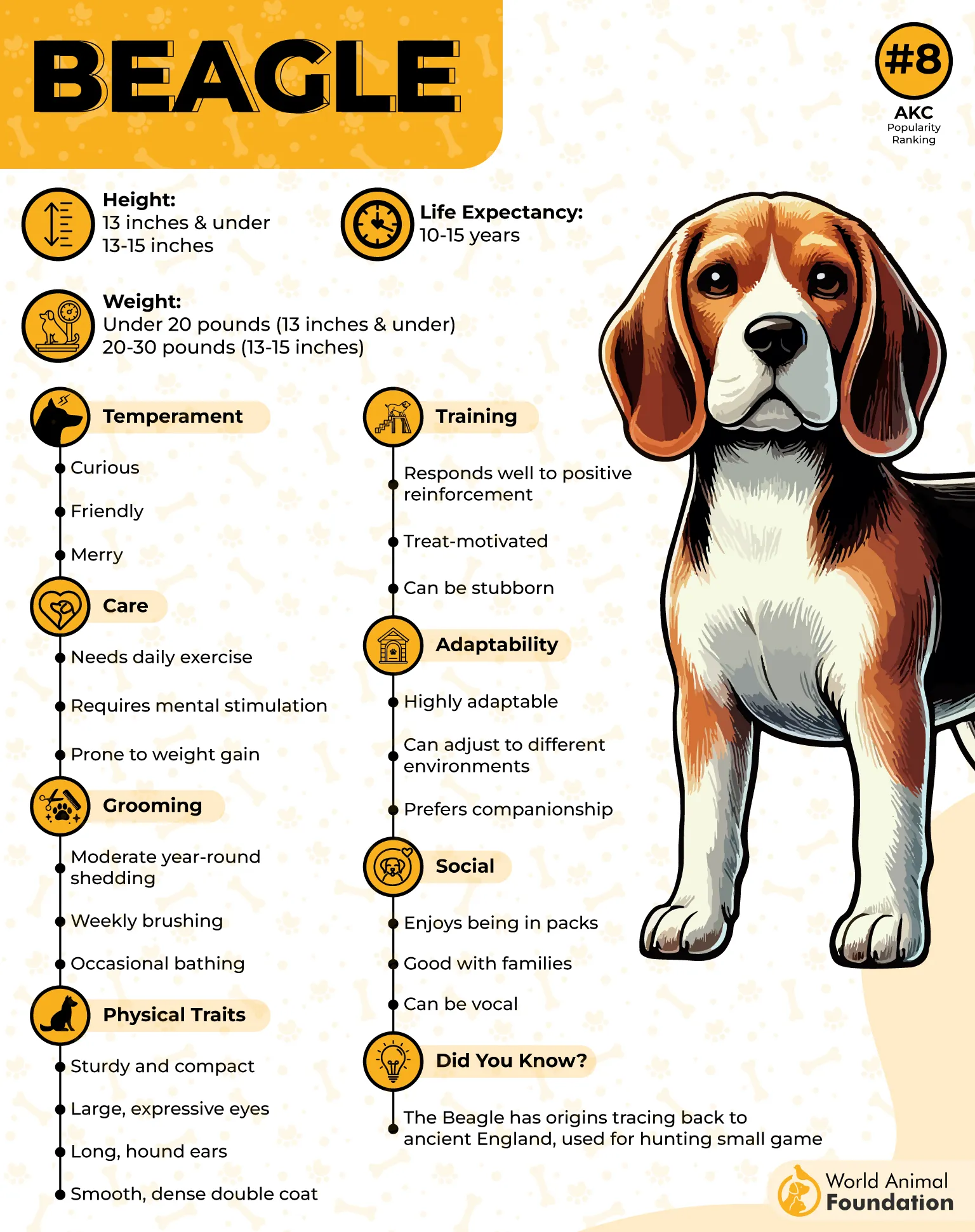
Physical Traits That Support Digestion
With a compact, muscular body and high energy levels, Beagles burn calories efficiently. They rarely overeat when properly portioned, which lowers pressure on the gut. Their activity keeps internal systems, including the gut microbiota, well-regulated.
Highly Sensitive Nose, Selective Intake
According to the Zealandia Pets, Beagles have over 220 million scent receptors, making their food preferences sharply refined. This sharp olfactory sense often leads them to foods that are better tolerated, which indirectly supports a healthy immune system and gut balance.
3. Australian Cattle Dog

This breed has a rugged digestive system shaped by generations of active outdoor living. They break down proteins and fats with efficiency, especially when fed nutrient-dense, meat-forward diets. Their gut tends to function consistently even with moderate dietary shifts.
Low Incidence of Digestive Sensitivities
Australian Cattle Dogs are less prone to food-related irritations or intolerances when raised on whole-food diets. Their intestinal microbiota remains relatively stable under routine feeding patterns. They show fewer signs of bloating or loose stools compared to more delicate breeds.
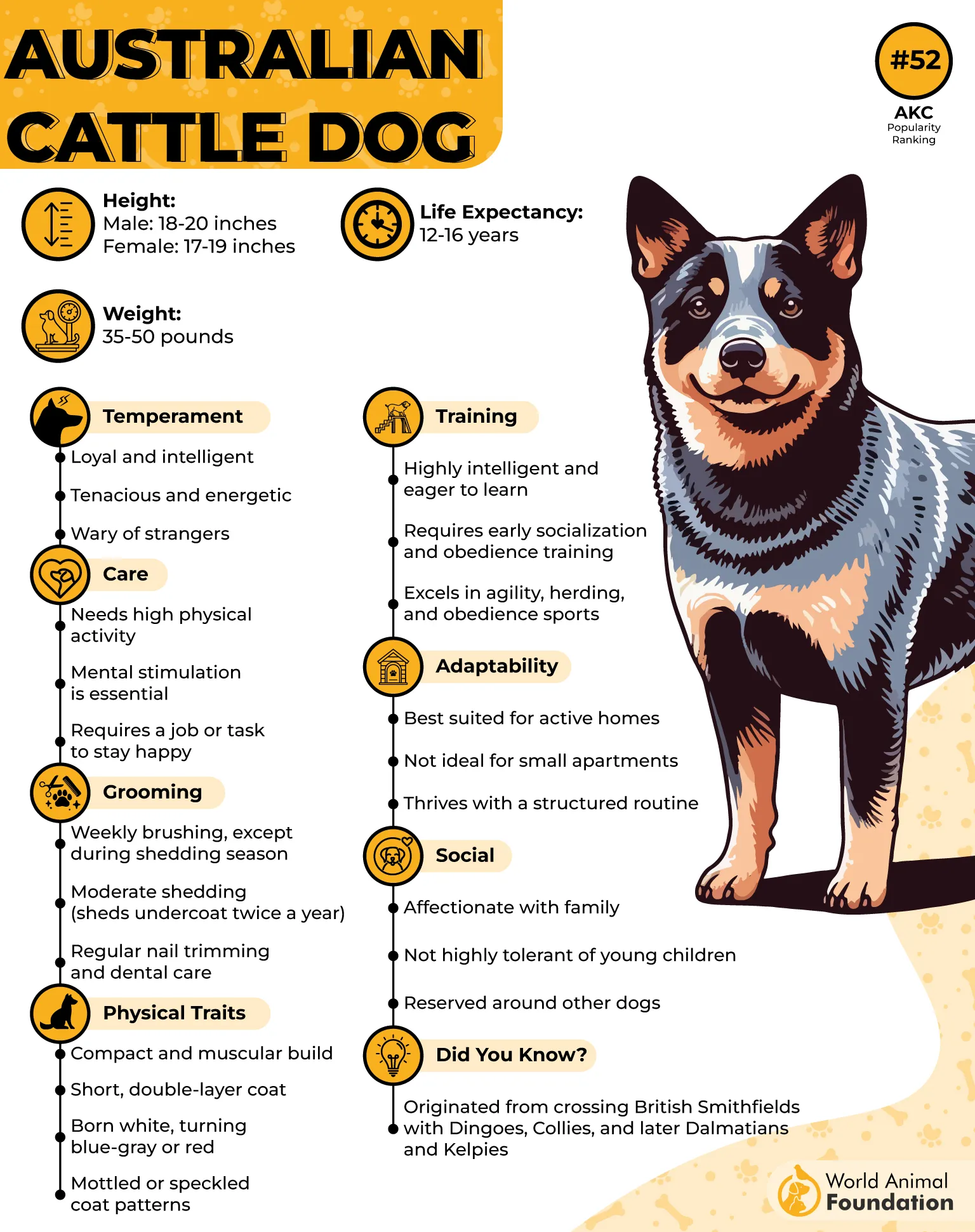
Supportive Internal Balance
A strong metabolism and lean body mass contribute to steady nutrient absorption and energy use. Their active lifestyle supports microbial diversity, which in turn helps maintain digestive regularity. These factors collectively contribute to a healthy microbiome.
Famous Trait Worth Noting
The oldest known dog in recorded history, “Bluey,” was an Australian Cattle Dog who lived to 29. This often-cited fact is linked to the breed’s internal durability, including the ability to maintain beneficial bacteria and gut health well into old age.
4. Greyhound
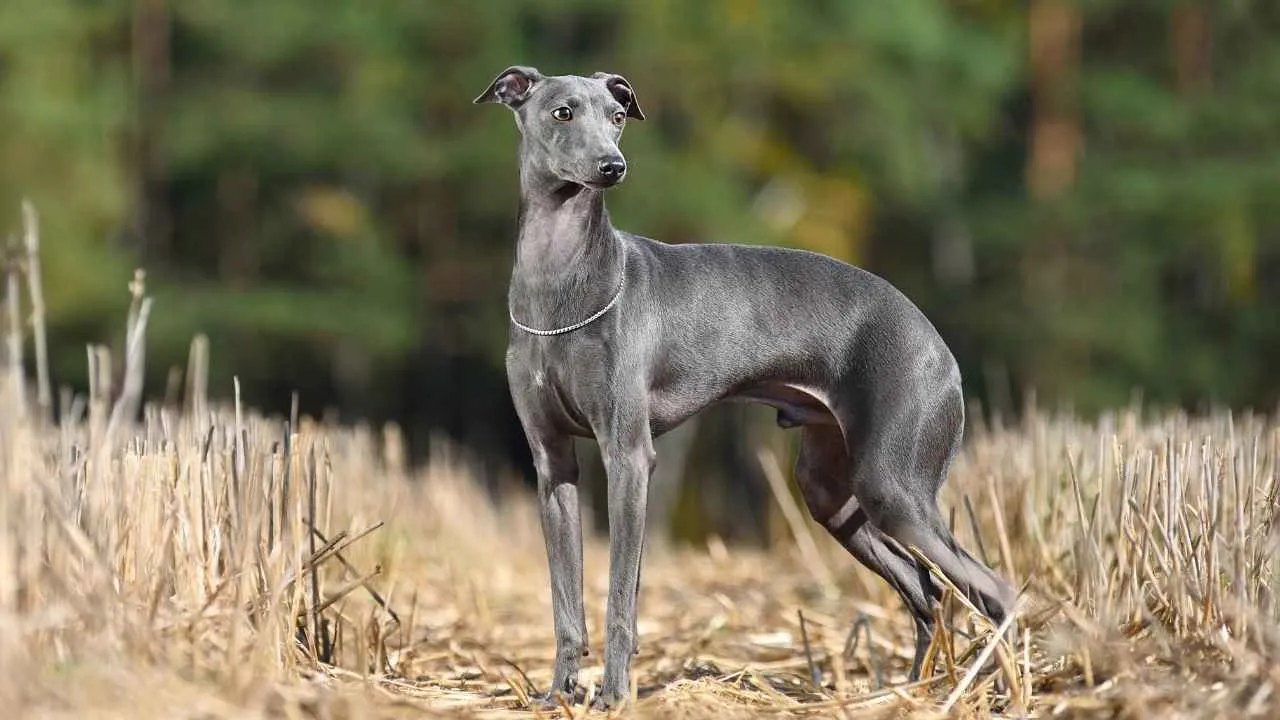
Greyhounds have a naturally lean build with low body fat, which contributes to smooth internal processing, as mentioned in the Oxford Stadium. Their digestive system isn’t overburdened, even with protein-rich diets. They typically require less food compared to heavier breeds of the same height.
Naturally Clean Eaters
This breed tends to approach food calmly and avoids overeating by instinct. Mealtimes are usually quiet and paced, minimizing digestive upset. Their habits also reduce the chances of gulping-related bloating or reflux.
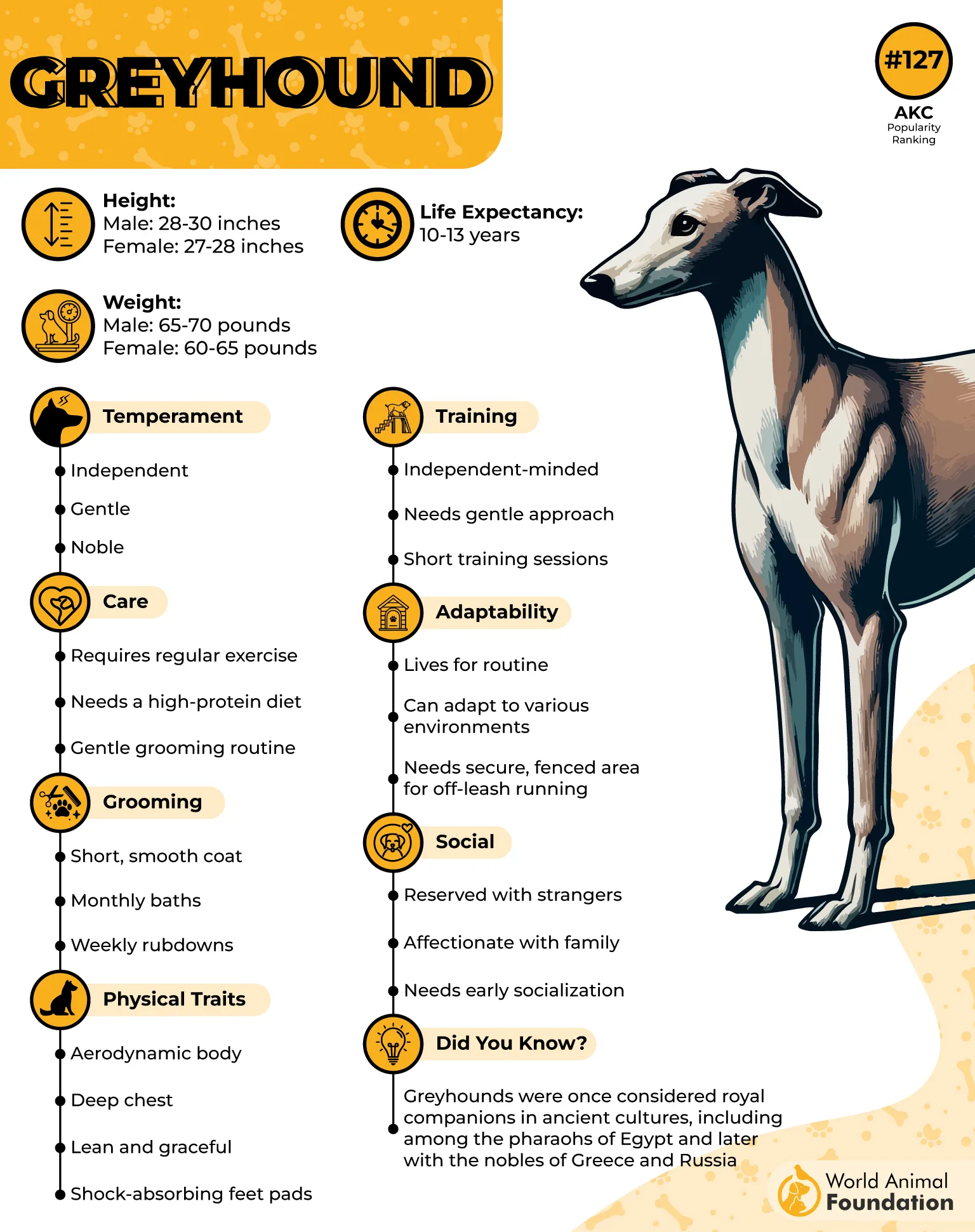
Low Risk of Sensitivities
When given high-quality food, Greyhounds usually show minimal reactions to common allergens. Their gut microbes support steady digestion and nutrient absorption. These qualities make them one of the consistently healthy dogs in terms of internal stability.
Recognized Physical Advantage
Their low body fat allows for efficient metabolic function and easier thermal regulation. These physical characteristics help maintain internal equilibrium. That balance plays a quiet but consistent role in keeping their gut health on track.
5. Havanese

Havanese tend to have steady eating habits and don’t overeat when fed on schedule. Their moderate appetite supports smoother digestion. Consistency in intake helps reduce stress on the intestinal tract.
Low Sensitivity to Common Foods
They tolerate a range of high-quality ingredients well when introduced properly. Digestive issues like bloating or diarrhea are less common with this breed. Most owners find that basic, balanced diets work long-term.
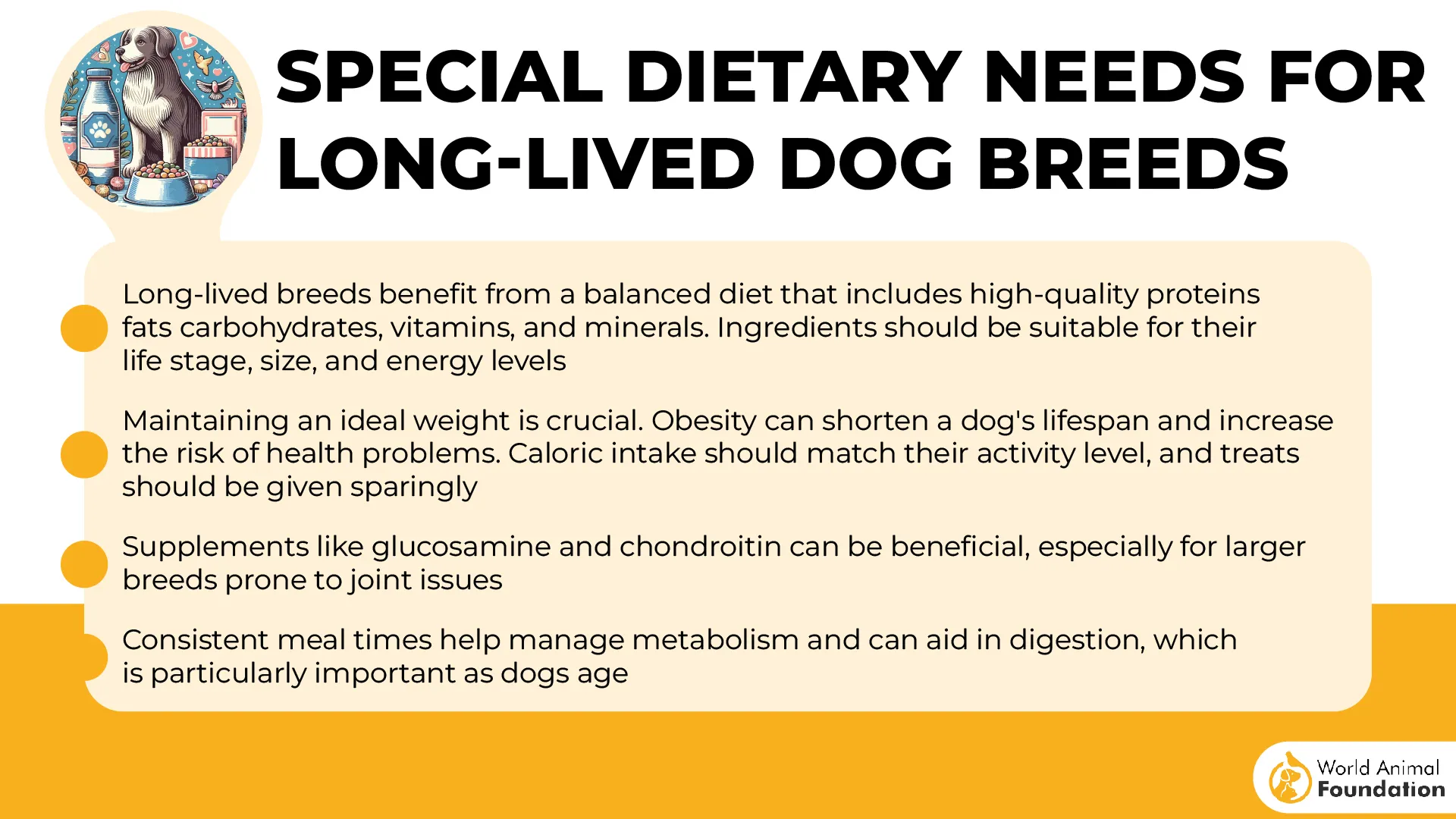
Small Size, Steady Metabolism
Their compact frame and moderate energy needs support efficient food processing. They burn calories at a steady rate without dramatic spikes. This balance makes digestive problems less likely over time.
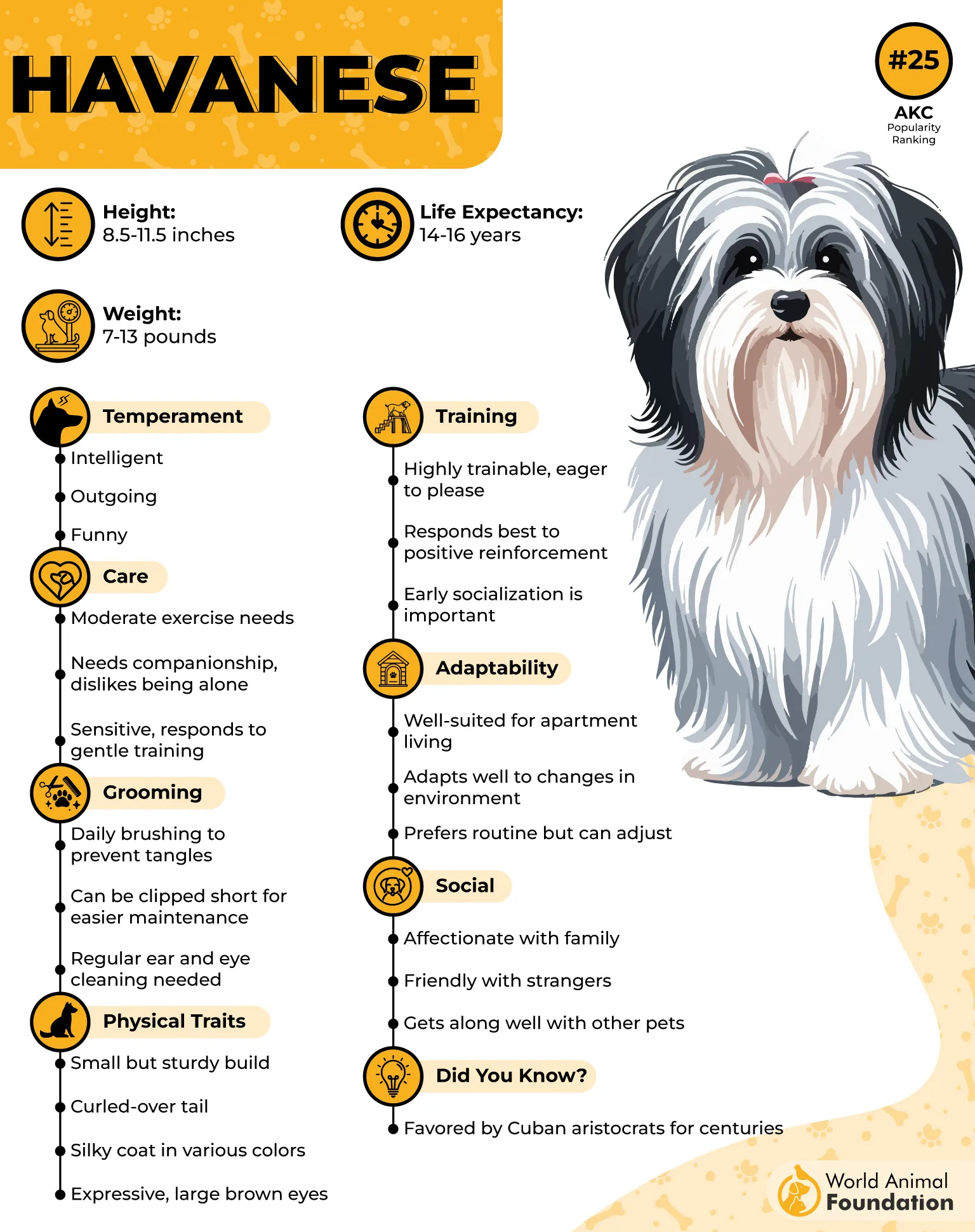
Even-Tempered and Low-Stress
Stress impacts digestion, and the Havanese’s calm, social nature supports gut balance. They adjust well to new environments, making them less prone to digestion-related stress. Their demeanor plays a quiet role in keeping things regular.
6. Bichon Frise

Bichon Frises tend to do well on consistent, portion-controlled meals that match their small size. Their digestion stays stable when they’re not overfed or constantly switched between food types. They usually respond well to quality kibble with simple ingredients.
Predictable Digestive Patterns
Their regular appetite and manageable food portions help maintain healthy digestion throughout the day. Stomach sensitivity is rare when meals are kept balanced and routine. Owners often note consistent energy and clean digestion with the right diet.
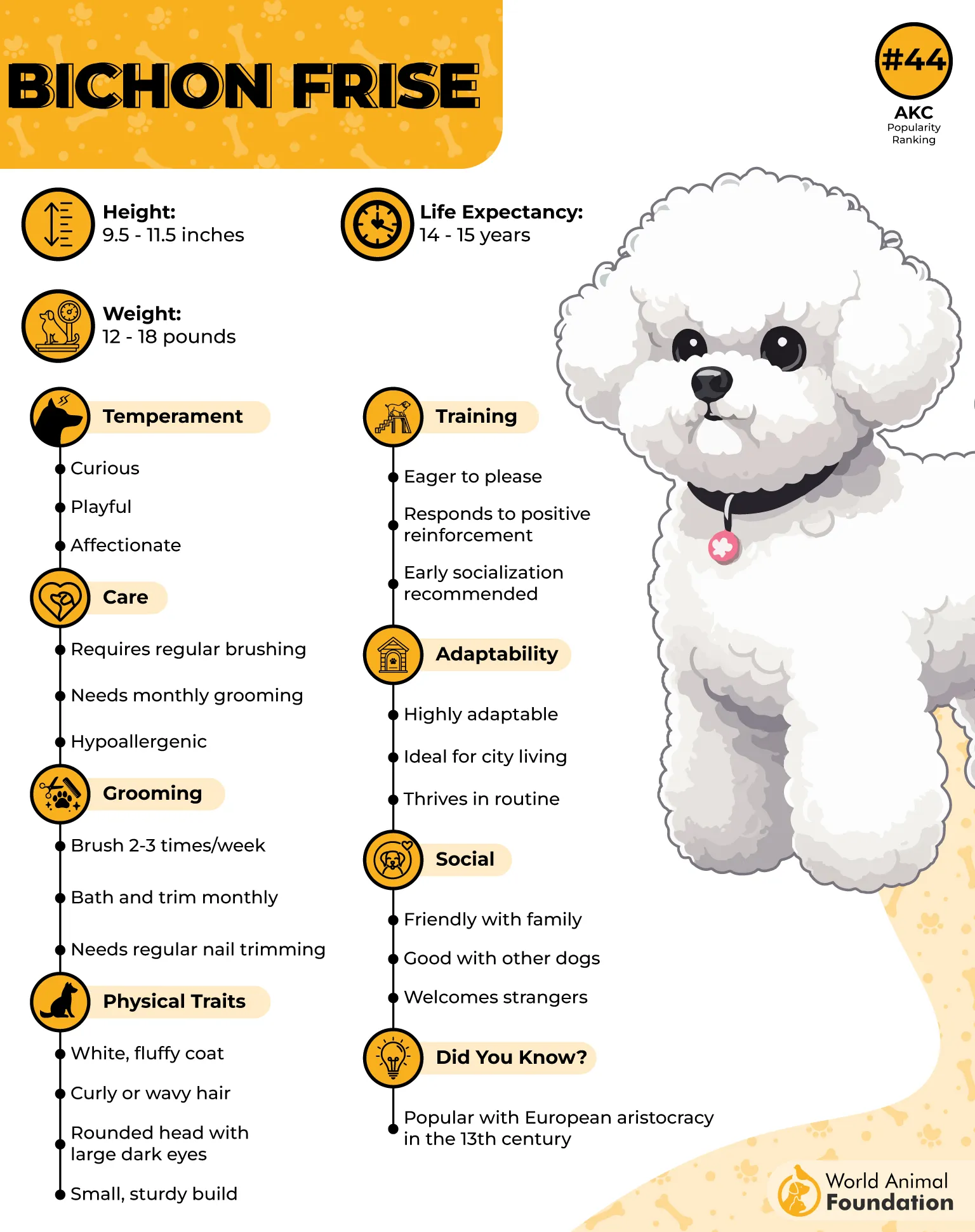
Well-Tolerated Food Options
They’re known to accept a variety of nutrient-rich dry or wet foods without frequent stomach upsets. When introduced slowly, limited-ingredient and grain-free options usually work well. That flexibility makes meal planning a lot easier for everyday care.
Low-Inflammation Traits
The Bichon’s non-shedding coat is one reason they’re often recommended for allergy-prone households. This low-inflammatory tendency can also reflect how their system stays calm internally, especially when supported by clean, ingredient-conscious meals.
7. Chihuahua

Due to their small stature, Chihuahuas consume limited portions, reducing strain on their digestive system. Smaller meals are easier to break down and metabolize. This also means fewer chances of gastrointestinal overload when fed properly.
Low-Risk Feeding Simplicity
They often do well on straightforward, portion-controlled diets without the need for complex food rotations. Their low-calorie needs make them less likely to overeat. This helps prevent food-related gut imbalances over time.
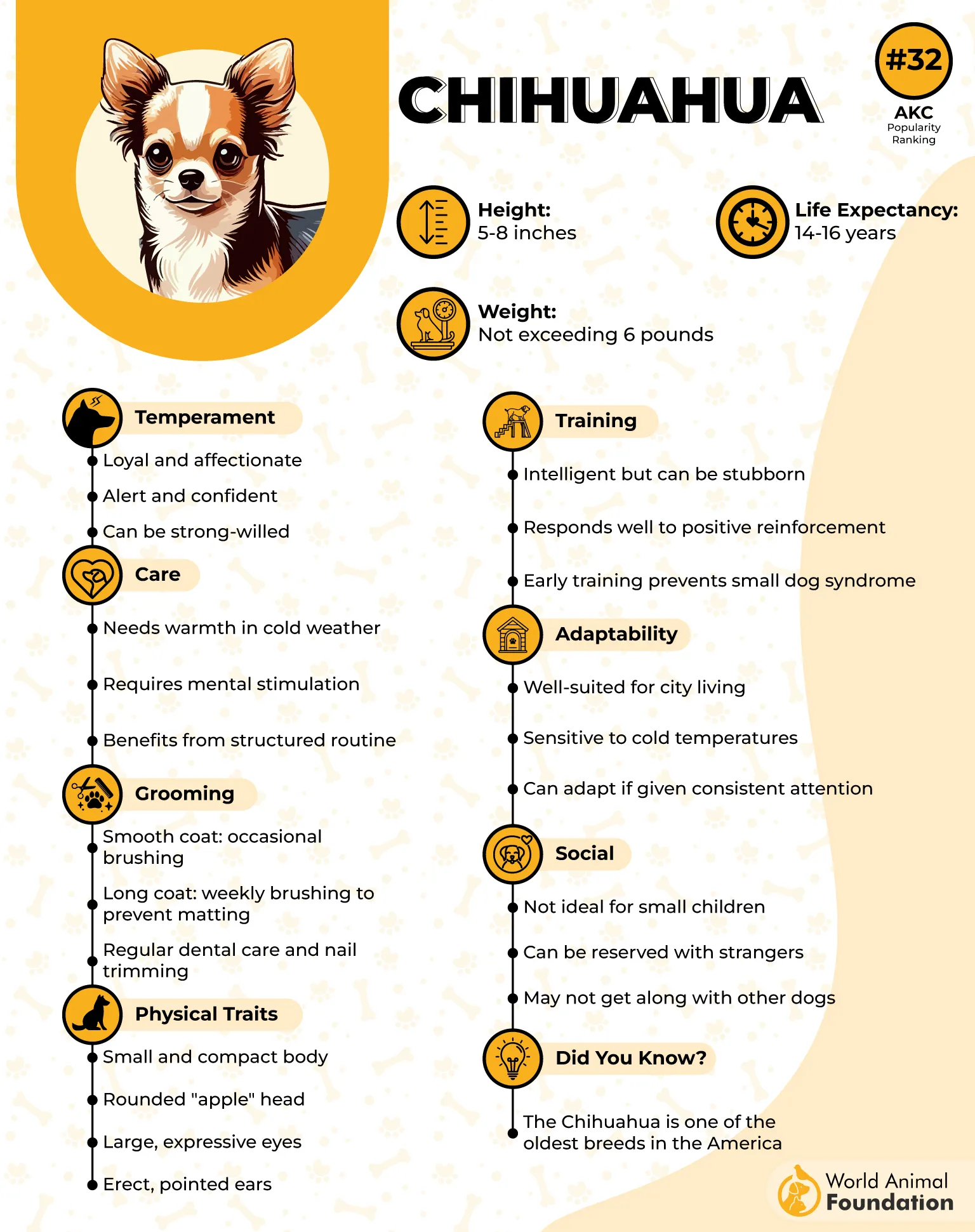
Consistent Eating Habits
Chihuahuas tend to eat slowly and maintain a consistent appetite when their environment is stable. This steady rhythm supports smoother digestion and predictable bowel habits. They’re also quick to show signs when something doesn’t agree with them.
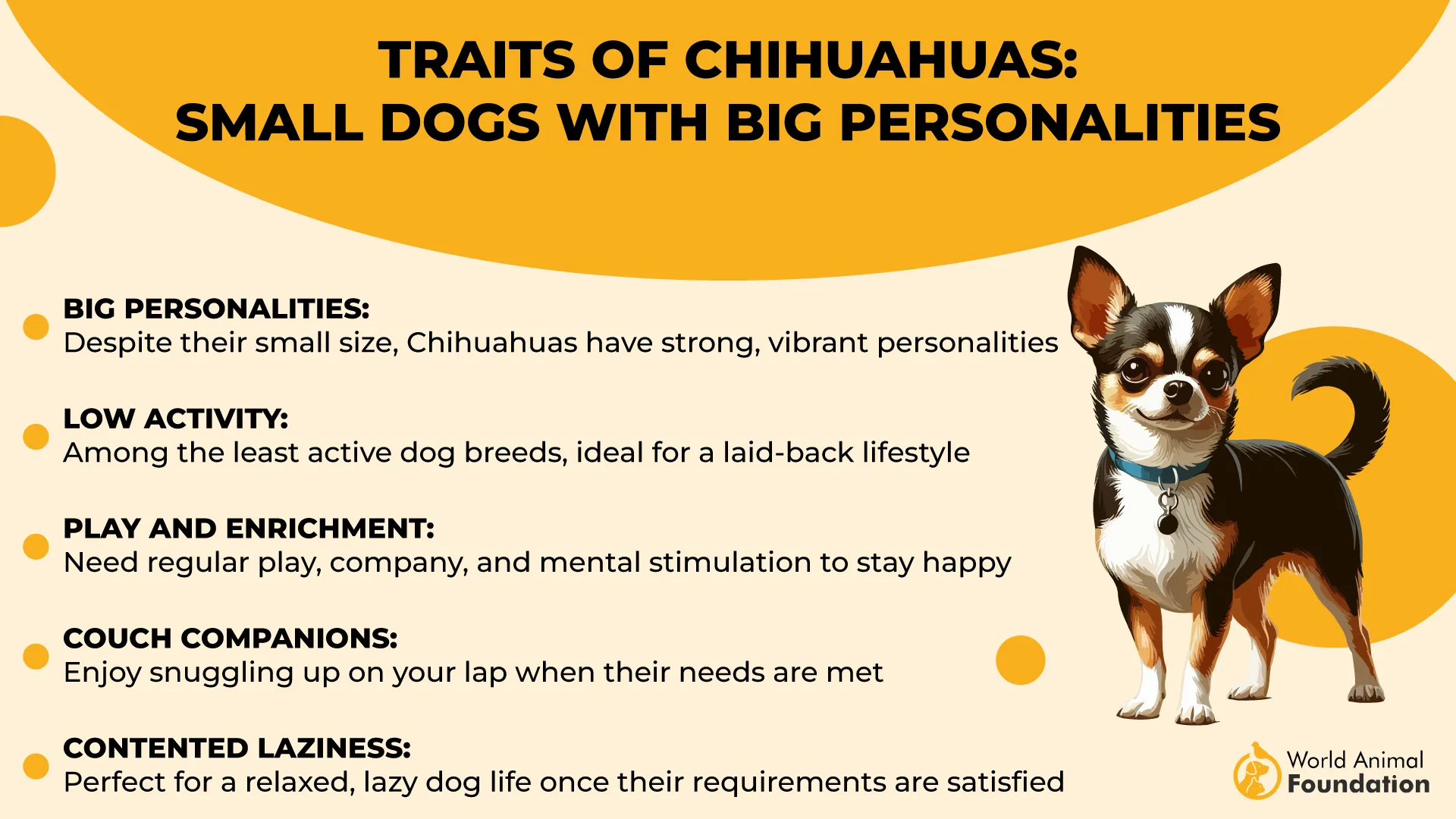
A Popular Trait That Reflects Stability
Chihuahuas are often described as long-lived dogs with minimal breed-wide digestive concerns. Their gut tends to respond well to high-quality, single-protein meals. This resilience adds to their reputation as a hardy toy breed with manageable dietary needs.
8. Siberian Husky

Siberian Huskies are known for needing surprisingly little food for their size. Their metabolism adjusts to physical demand, making their digestive system efficient and energy-conserving. This helps reduce unnecessary strain on the gut over time.
Digestive Resilience
They typically do well on high-quality, high-protein diets without frequent dietary complications, as mentioned in Vets Love Pets. Their system doesn’t require frequent switching or special formulas. Owners often find their digestive needs stable and predictable with consistent feeding.
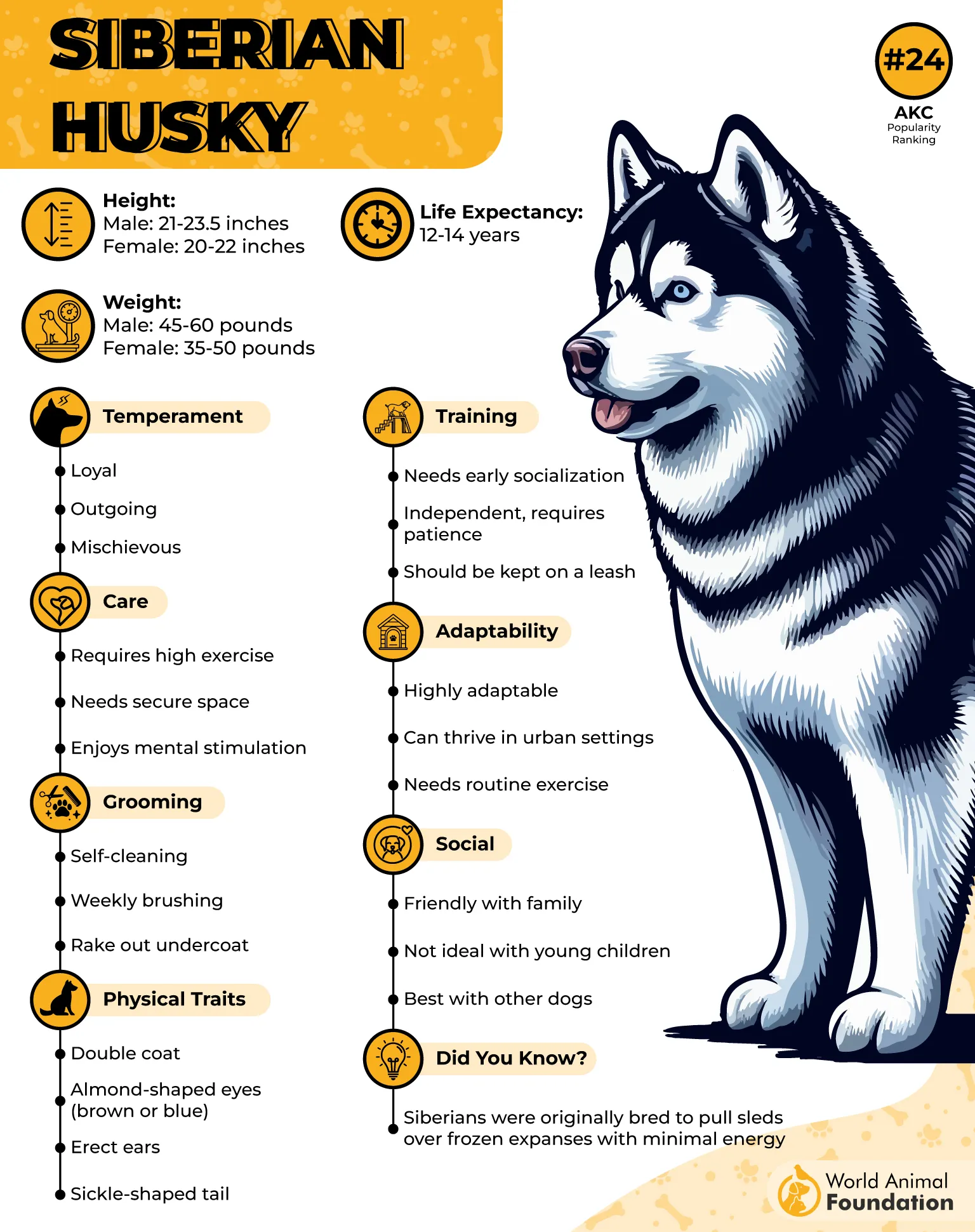
Lean Body Composition
Their naturally athletic, low-fat build contributes to cleaner digestion and less fat storage. This allows for smoother processing of food and fewer issues tied to overfeeding. They also tend to maintain muscle without digestive overload.
Feeding Consistency in Active Dogs
Even with high physical activity, their gut performance remains steady under consistent feeding routines. Many tolerate dry kibble, raw, or combination diets without stomach trouble. This digestive adaptability supports their active lifestyle without frequent gut disturbances.
9. Basenji

Basenjis are known to be selective eaters, often avoiding food that doesn’t sit well with them. This self-regulation plays a role in maintaining steady digestion. It also reduces the chances of consuming items that typically trigger sensitivity.
Low Drooling and Efficient Chewing
They chew food thoroughly and rarely drool, which means more effective enzymatic digestion starts in the mouth. This clean eating behavior supports a smoother gut process. Their lean jaw structure helps them break food down properly.
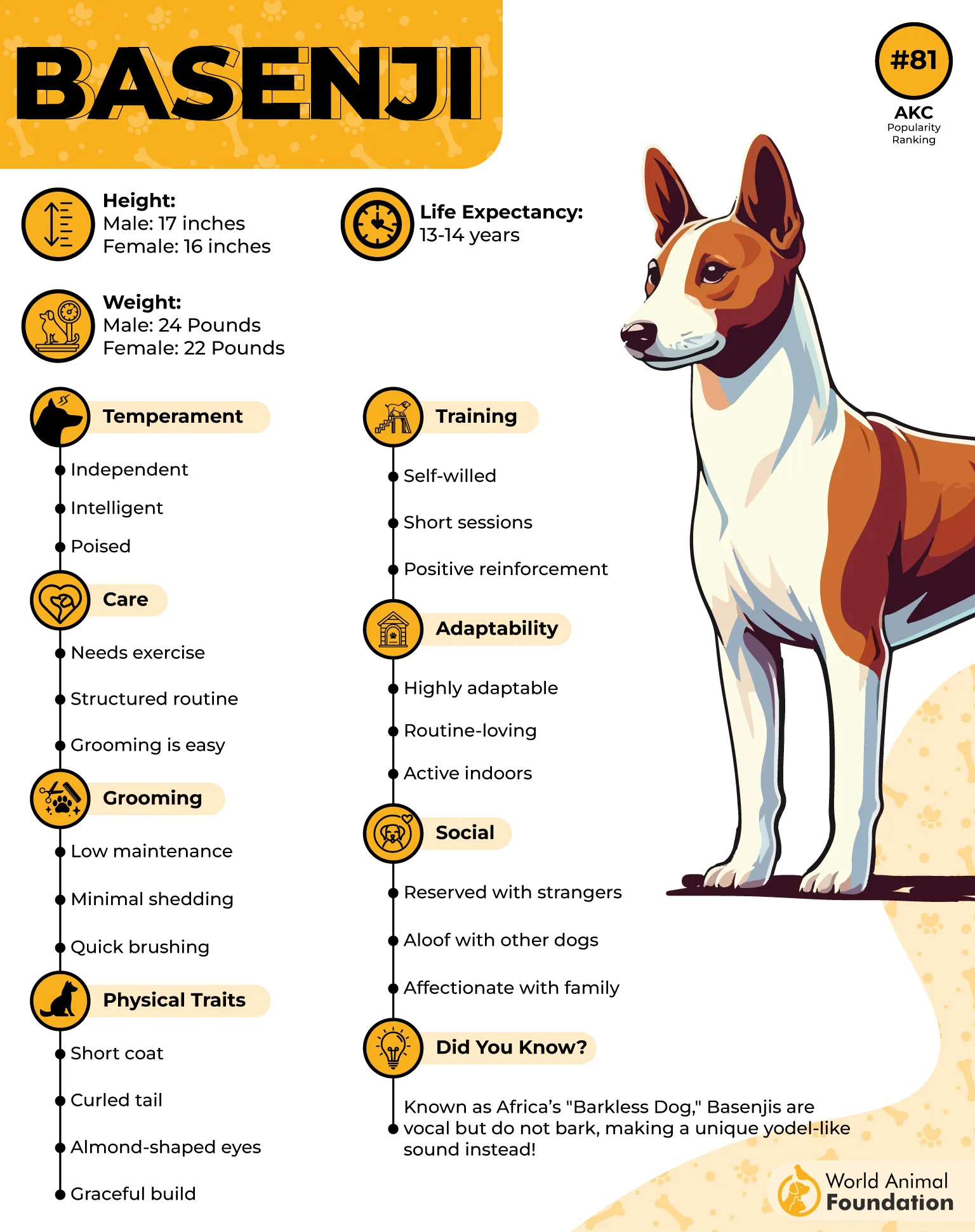
Compact Build and Stable Appetite
With a small, muscular frame, Basenjis generally maintain a steady weight throughout adulthood. They aren’t prone to overeating or irregular feeding habits. These traits contribute to gut regularity and reduced digestive stress.
Minimal Flatulence and Clean Elimination
Basenjis are often noted for having fewer gastric issues when kept on a proper diet, as stated in the PetMD. Their gut seems to process high-quality proteins and grains without irregular reactions. This makes their digestive cycle more consistent than average.
10. Border Collie

Border Collies are extremely efficient when it comes to processing calories into energy. Their high activity levels pair with a metabolism that rarely leads to excess fat accumulation. This keeps their digestive rhythm balanced through consistent movement.
Balanced Digestive Response
Their diet tends to remain simple — quality proteins, light carbs, and lean fats keep their system regular. Border Collies aren’t known for food intolerance when fed appropriate portions. Their stools are typically firm, which reflects overall gut stability.
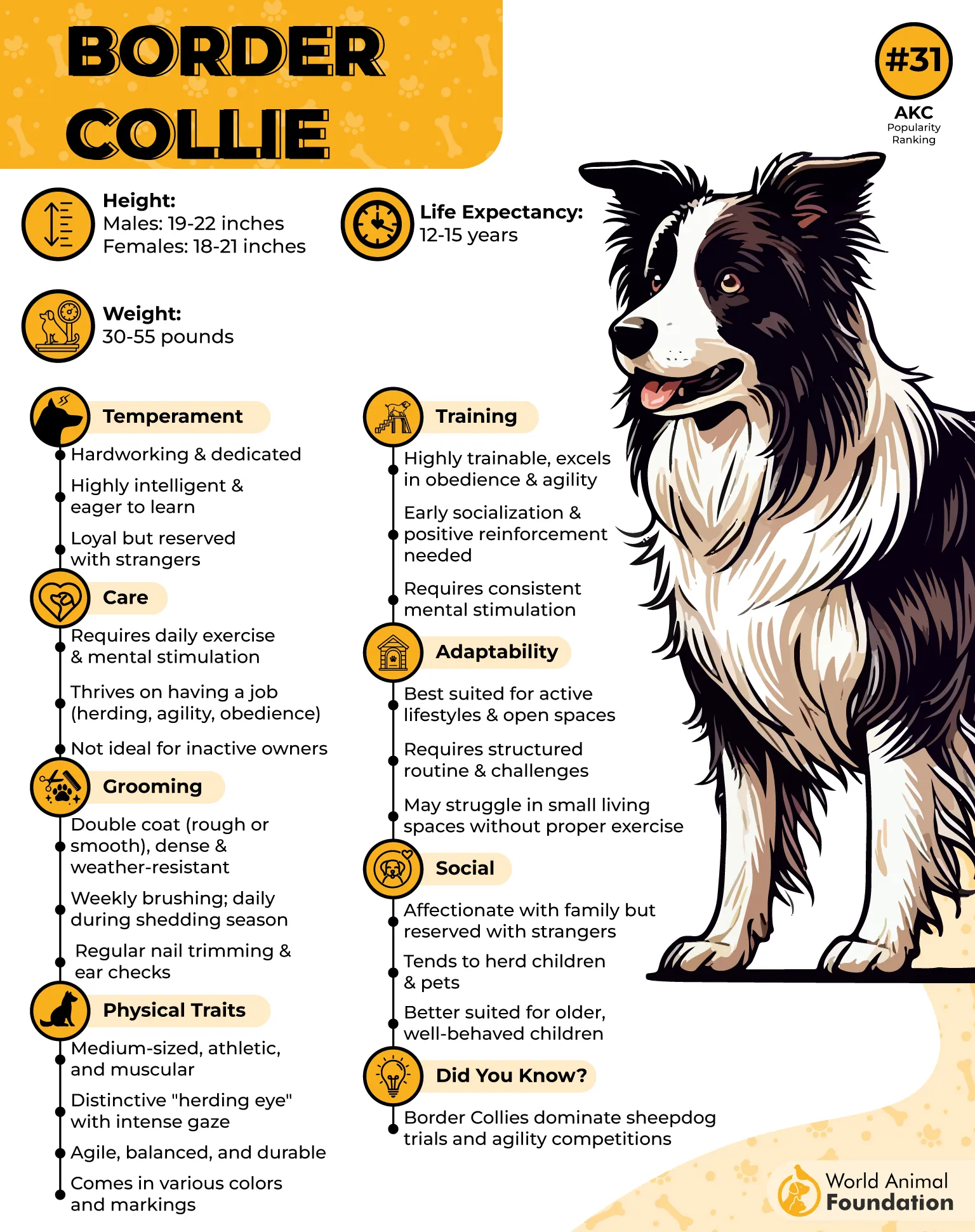
Appetite Control and Meal Consistency
Unlike breeds that overeat, Border Collies often regulate their food intake well. They respond best to structured meal times, which encourages even digestive flow. Owners often note that they adjust naturally to diet shifts if introduced gradually.
Unique Eating Behavior
One commonly known trait is their tendency to avoid overeating even when food is freely available. This natural moderation, paired with daily energy output, reduces digestive strain. It helps maintain a smooth internal rhythm without excessive feeding corrections.
Conclusion
Digestive health plays a quiet but vital role in a dog’s overall well-being. Breeds with stronger guts often show better energy, healthier coats, and fewer vet visits over time. Their gut microbiota composition stays balanced, supporting smooth digestion and protection from common issues.
These dogs also produce beneficial short-chain fatty acids that help fuel the cells lining the canine gastrointestinal tract. With the right care, their GI tract stays steady and less prone to upset.
Choosing one of these breeds may reduce the long-term risk of gastrointestinal disease and even some metabolic diseases. If gut wellness matters to you, these breeds are a smart, natural fit.


